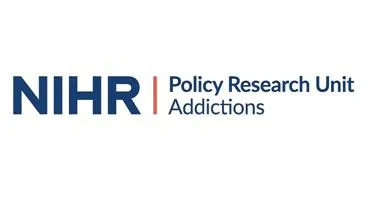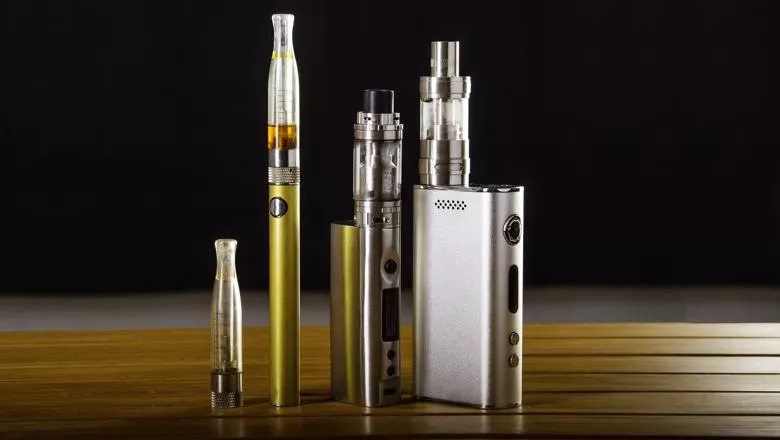
Dr Leonie Brose
Reader in Addiction Education and Nicotine Research
Research interests
- Mental Health
Biography
Leonie Brose joined the National Addiction Centre, Institute of Psychiatry, Psychology & Neuroscience (IoPPN) at King’s in 2013, having previously worked at the National Centre for Smoking Cessation and Training (NCSCT) and University College London. Leonie received her PhD from Royal Holloway, University of London.
Leonie has conducted research into smoking cessation in clinical practice, its effectiveness and ways to improve it. Currently, one area of research is smoking and mental health, the area of her Cancer Research UK Fellowship 2015-2018.
A second area of research is vaping (e-cigarettes); the Nicotine Research Group has been conducting a unique longitudinal survey since 2012. Leonie is a co-author of several reports on e-cigarettes commissioned by Public Health England.
Research Interests
- Smoking cessation
- Smoking and mental health
- Vaping/ e-cigarettes
- Tobacco control
Teaching
Leonie is Programme Lead for the MSc Addiction Studies and local academic lead for the International Programme in Addiction Studies (IPAS).
Expertise and Public Engagement
Leonie is Associate Editor for the journals Addiction and Nicotine & Tobacco Research. She is a member of the Society for Research on Nicotine and Tobacco (SRNT) and co-chaired its Treatment Research Network Advisory Committee from 2017-2019.
Research

Nicotine Research Group
Our research is translational, collaborative, impactful and truly international, and you can find out more about the various areas of our work via the project links below.

Harm Reduction
Aiming to reduce the harmfulness of nicotine use for those who wish to continue using it, or those who cannot stop smoking.
Project status: Ongoing

Vulnerable Populations
Smoking is much more common among vulnerable populations in society. We have a number of projects which aim to reduce smoking among these vulnerable populations
Project status: Ongoing

Mental Health Inequalities (SPECTRUM): Disrupting the relationship between mental health, stigma and unhealthy commodities
SPECTRUM Work Package 7: Disrupting the relationship between mental health, stigma and unhealthy commodities
Project status: Ongoing

Vaping evidence reviews for Public Health England
The NRG leads the annual reviews of the evidence on e-cigarettes commissioned by Public Health England (now Office for Health Improvement and Disparities).
Project status: Ongoing
Vaping and smoking among people aged 16-19 in England
An NIHR funded study comparing toxicant and nicotine exposure among youth who vape with youth who smoke, youth who vape and smoke, and youth who do neither.
Project status: Ongoing

Prevalence and patterns of vaping non-nicotine drugs: a cross sectional survey
An NIHR-BRC and Addictions Department funded study to assess how common vaping drugs other than nicotine is in UK.
Project status: Ongoing

Nicotine Research Group - PhD Projects
Read more about our current PhD students and their projects.
Project status: Ongoing

NIHR Policy Research Unit in Addictions
Addictive products, behaviours and systems
News
£5.5m NIHR funding to shape effective addictions policy across UK
New NIHR Policy Research Unit will be co-led by King’s College London in collaboration with the University of Sheffield and the University of Glasgow.

Levels of those considered “severely distressed” rise steadily since the start of the pandemic
New research from the Institute of Psychiatry, Psychology & Neuroscience (IoPPN) at King’s College London, the Department of Behavioural Science & Health at...

Vaping substantially less harmful than smoking, largest review of its kind finds
New research from the Institute of Psychiatry, Psychology & Neuroscience (IoPPN) at King’s College London has found that the use of vaping products rather...

Daily e-cigarette use shows 'clear benefit' in helping smokers to quit
A new study published Tuesday 10 March, No Smoking Day, from King’s College London highlights the ‘clear benefit’ of using e-cigarettes daily in order to quit...

Evidence strengthens that vaping is effective for stopping smoking but not reaching its full potential with adult smokers
Smoking remains the largest single risk factor for death and years of life lived in ill-health and is a leading cause of health inequalities in England.

380k 'non-smokers' regularly smoke cannabis, putting their health at risk
A new study published in the journal Addiction finds significant levels of cannabis use among people who classify themselves as non-smokers.

New report by King's researchers on vaping in England to inform national policy
The latest Public Health England (PHE) report on vaping, led by researchers from King’s College London, is published today.

Spotlight
Clearing the smoke: the evidence behind vaping
Cigarettes kill over half of their long-term users. The World Health Organisation (WHO) considers the tobacco epidemic to be one of the biggest public health...

Research

Nicotine Research Group
Our research is translational, collaborative, impactful and truly international, and you can find out more about the various areas of our work via the project links below.

Harm Reduction
Aiming to reduce the harmfulness of nicotine use for those who wish to continue using it, or those who cannot stop smoking.
Project status: Ongoing

Vulnerable Populations
Smoking is much more common among vulnerable populations in society. We have a number of projects which aim to reduce smoking among these vulnerable populations
Project status: Ongoing

Mental Health Inequalities (SPECTRUM): Disrupting the relationship between mental health, stigma and unhealthy commodities
SPECTRUM Work Package 7: Disrupting the relationship between mental health, stigma and unhealthy commodities
Project status: Ongoing

Vaping evidence reviews for Public Health England
The NRG leads the annual reviews of the evidence on e-cigarettes commissioned by Public Health England (now Office for Health Improvement and Disparities).
Project status: Ongoing
Vaping and smoking among people aged 16-19 in England
An NIHR funded study comparing toxicant and nicotine exposure among youth who vape with youth who smoke, youth who vape and smoke, and youth who do neither.
Project status: Ongoing

Prevalence and patterns of vaping non-nicotine drugs: a cross sectional survey
An NIHR-BRC and Addictions Department funded study to assess how common vaping drugs other than nicotine is in UK.
Project status: Ongoing

Nicotine Research Group - PhD Projects
Read more about our current PhD students and their projects.
Project status: Ongoing

NIHR Policy Research Unit in Addictions
Addictive products, behaviours and systems
News
£5.5m NIHR funding to shape effective addictions policy across UK
New NIHR Policy Research Unit will be co-led by King’s College London in collaboration with the University of Sheffield and the University of Glasgow.

Levels of those considered “severely distressed” rise steadily since the start of the pandemic
New research from the Institute of Psychiatry, Psychology & Neuroscience (IoPPN) at King’s College London, the Department of Behavioural Science & Health at...

Vaping substantially less harmful than smoking, largest review of its kind finds
New research from the Institute of Psychiatry, Psychology & Neuroscience (IoPPN) at King’s College London has found that the use of vaping products rather...

Daily e-cigarette use shows 'clear benefit' in helping smokers to quit
A new study published Tuesday 10 March, No Smoking Day, from King’s College London highlights the ‘clear benefit’ of using e-cigarettes daily in order to quit...

Evidence strengthens that vaping is effective for stopping smoking but not reaching its full potential with adult smokers
Smoking remains the largest single risk factor for death and years of life lived in ill-health and is a leading cause of health inequalities in England.

380k 'non-smokers' regularly smoke cannabis, putting their health at risk
A new study published in the journal Addiction finds significant levels of cannabis use among people who classify themselves as non-smokers.

New report by King's researchers on vaping in England to inform national policy
The latest Public Health England (PHE) report on vaping, led by researchers from King’s College London, is published today.

Spotlight
Clearing the smoke: the evidence behind vaping
Cigarettes kill over half of their long-term users. The World Health Organisation (WHO) considers the tobacco epidemic to be one of the biggest public health...

